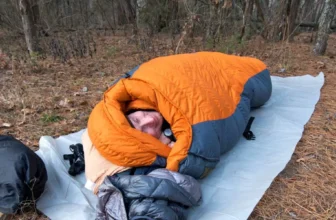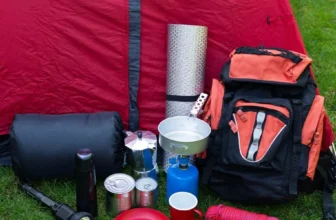
When embarking on a camping trip, your safety should be a top priority. Ensuring you have the right equipment can make all the difference between a memorable experience and a potential emergency situation. From first aid essentials to communication devices, each item in your kit serves a crucial purpose. But what are the must-have safety items you need to pack for every camping excursion? Let's explore the key safety gear that should accompany you on all your outdoor adventures.
First Aid Kit Essentials
When camping, always pack a compact first aid kit with essential supplies such as bandages, antiseptic wipes, and pain relievers. It's crucial to be prepared for any minor injuries or accidents that may occur while enjoying the great outdoors. Make sure your first aid kit is easily accessible in case of emergencies.
Bandages are a must-have in your first aid kit. They're essential for covering wounds and protecting them from dirt and bacteria. Whether you have a small cut or a blister from hiking, bandages will help keep the area clean and promote healing.
Antiseptic wipes are important for cleaning cuts and scrapes to prevent infection. These wipes can also be used to clean your hands before administering first aid, reducing the risk of introducing harmful bacteria to wounds.
Pain relievers such as ibuprofen or acetaminophen can come in handy for alleviating headaches, muscle aches, or other minor pains that may arise during your camping trip. Remember to check the expiration dates on your supplies and replenish them as needed to ensure your first aid kit is always ready for use.
Navigation Tools
Include a reliable compass and detailed map in your camping gear to ensure accurate navigation while exploring the wilderness. These tools are essential for orienting yourself, especially in remote areas where GPS signals may be unreliable. Familiarize yourself with how to use a compass and interpret a map before embarking on your camping trip. A compass can help you determine directions, such as north, south, east, and west, while a map provides valuable information about the terrain, landmarks, and potential hazards along your route.
In addition to a compass and map, consider bringing a GPS device as a backup navigation tool. While a compass and map are reliable, a GPS can provide real-time location data and help track your progress. Remember to pack spare batteries or a portable charger for your electronic devices to ensure they remain operational throughout your trip.
Emergency Shelter Supplies
Make sure to pack compact and lightweight emergency shelter supplies for unexpected situations during your camping trip. In case you get lost or encounter severe weather conditions, having these supplies can make a significant difference in your safety and well-being.
Consider bringing a durable emergency tent or a lightweight tarp that can provide protection from the elements. These shelters are easy to set up and can offer a temporary refuge until help arrives. Additionally, pack a few emergency blankets to retain body heat and stay warm in cold conditions.
A compact sleeping bag or bivvy sack can also be useful for overnight stays in the wilderness. Don't forget to include a sturdy rope or paracord to secure your shelter and keep it stable in windy conditions.
Communication Devices
Ensure you have reliable communication devices packed for your camping trip to stay connected and safe in case of emergencies. A fully charged cell phone is a must, but remember that signal strength can be weak in remote areas. Consider bringing a portable charger or a solar charger to keep your devices powered.
Two-way radios are also handy for short-range communication between members of your group when cell service is unavailable. In case of an emergency, a Personal Locator Beacon (PLB) or a satellite messenger can be a literal lifesaver by sending out distress signals with your exact location to emergency services.
Additionally, a whistle is a simple yet effective tool for signaling for help in case you get lost or encounter danger. Finally, don't forget to have a list of emergency contacts written down in case your electronic devices fail. By being prepared with the right communication devices, you can ensure a safer and more secure camping experience.
Personal Safety Gear
When it comes to personal safety while camping, having the right gear can make all the difference in emergency situations. One essential piece of personal safety gear is a reliable first aid kit. Make sure it includes items such as bandages, antiseptic wipes, gauze pads, adhesive tape, and pain relievers.
A multi-tool or a pocket knife can also come in handy for various tasks and emergencies. It's crucial to have a flashlight with extra batteries, especially if you're camping in remote areas without access to electricity. Consider carrying a whistle to signal for help if needed, as well as a compass or GPS device to aid in navigation.
Additionally, wearing appropriate clothing and footwear for the terrain and weather conditions is essential for preventing injuries. Lastly, a personal locator beacon (PLB) or satellite messenger can be a lifesaving device in case you find yourself in a critical situation where you need to call for rescue. Remember, being prepared with the right personal safety gear can help ensure a safer camping experience.




